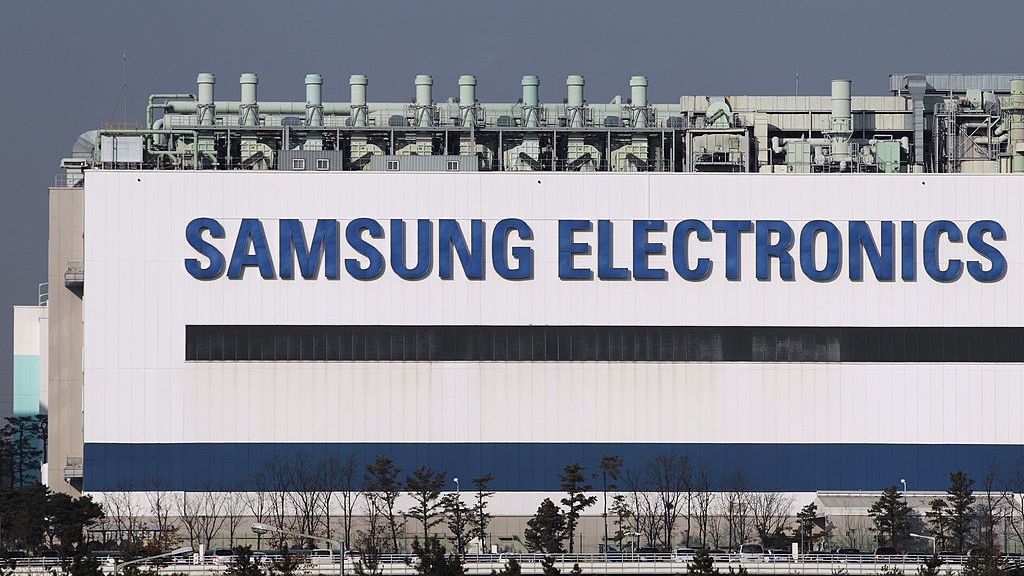Samsung proposes 11 Texas semiconductor plants worth $191 billion
The school boards of Austin and Taylor are to consider new facilities that could bring 10,000 new jobs to the area


Samsung has proposed the building of 11 new chip making factories in the Austin and Taylor areas of Texas, representing $191.2 billion of investment.
The proposals, published on the Texas comptroller’s website on Wednesday, mark a significant move by the South Korean manufacturing giant to corner the semiconductor market in the US, and would represent a sizeable investment in Texas' $2 trillion economy.
RELATED RESOURCE

The field guide to application modernisation
Moving forward with your enterprise application portfolio
If approved, the facilities are expected to stimulate the local economy to the tune of 10,000 jobs. Approximately 1,800 of these jobs would be created in Austin, with the remaining 8,200 in Taylor.
It follows another major move by Samsung in Texas this year, with a $17 billion semiconductor facility in Taylor hoping to break ground in 2022. Just last month, Samsung identified Yates Construction, a Mississippi-based contractor, as the builder for this facility, which the company hopes will be operational in 2024.
Speaking to the Austin American Statesman, the executive director of the Austin Regional Manufacturers Association Ed Latson emphasised the scale of the proposal.
"Samsung's commitment and investment in this area are in a class of their own."
"We're talking about the largest foreign investment in the United States right here in our region. It's going [to] have a dramatic impact on the economic development and growth of Central Texas."
Get the ITPro daily newsletter
Sign up today and you will receive a free copy of our Future Focus 2025 report - the leading guidance on AI, cybersecurity and other IT challenges as per 700+ senior executives
The documents published yesterday point to long-term expansion plans in Texas, with estimates that construction on the sites could begin between 2027-29. The proposals seek a Chapter 313 Agreement with the school boards of each area, an agreement named after a chapter in Texas tax law that states a taxpayer may agree to build property and create jobs in exchange for “a 10-year limitation on the taxable property value for school district maintenance and operations tax (M&O) purposes”.
In a statement to IT Pro, Samsung made clear that it is exploring options in the area without committal.
"We currently do not have specific plans to build at this time, however, the Chapter 313 applications to the State of Texas are part of a long-term planning process of Samsung to evaluate the viability of potentially building additional fabrication plants in the United States," said a spokesperson.
Texas is already established as a chip manufacturer, with semiconductors being the state’s 6th largest export in 2019, for a total of over $13.8 billion. Samsung is also well-established in the state, already operating a semiconductor facility that employs thousands of workers.
The expansion of localised semiconductor manufacturing is currently seen as a key goal in both the US and Europe. The EU continues to move ahead with its European Chips Act to accelerate the development of sites such as a planned €33 billion Intel facility in Germany.
Meanwhile, the US Congress is expected to pass a version of its own CHIPS Act soon, which seeks to provide $52 billion in grants for chip manufacturers in order to stimulate domestic production. Manufacturers have lobbied heavily for the funding, with Intel pausing construction on a planned facility in Ohio until the act is passed.
This article was updated to include a statement from Samsung.

Rory Bathgate is Features and Multimedia Editor at ITPro, overseeing all in-depth content and case studies. He can also be found co-hosting the ITPro Podcast with Jane McCallion, swapping a keyboard for a microphone to discuss the latest learnings with thought leaders from across the tech sector.
In his free time, Rory enjoys photography, video editing, and good science fiction. After graduating from the University of Kent with a BA in English and American Literature, Rory undertook an MA in Eighteenth-Century Studies at King’s College London. He joined ITPro in 2022 as a graduate, following four years in student journalism. You can contact Rory at rory.bathgate@futurenet.com or on LinkedIn.
-
 CISA issues warning in wake of Oracle cloud credentials leak
CISA issues warning in wake of Oracle cloud credentials leakNews The security agency has published guidance for enterprises at risk
By Ross Kelly
-
 Reports: White House mulling DeepSeek ban amid investigation
Reports: White House mulling DeepSeek ban amid investigationNews Nvidia is caught up in US-China AI battle, but Huang still visits DeepSeek in Beijing
By Nicole Kobie
-
 Samsung ramps up AI capabilities with Oxford Semantic Technologies acquisition
Samsung ramps up AI capabilities with Oxford Semantic Technologies acquisitionNews Oxford Semantic Technologies' knowledge graph tech will be incorporated into Samsung products across the board
By Emma Woollacott
-
 Samsung UK recruits its first chief customer officer in bid to boost partner engagement
Samsung UK recruits its first chief customer officer in bid to boost partner engagementNews Deborah Honig will lead Samsung UK’s customer experience activity across its portfolio of business offerings in the region
By Daniel Todd
-
 How to empower employees to accelerate emissions reduction
How to empower employees to accelerate emissions reductionin depth With ICT accounting for as much as 3% of global carbon emissions, the same as aviation, the industry needs to increase emissions reduction
By Fleur Doidge
-
 Worldwide IT spending to grow 4.3% in 2023, with no significant AI impact
Worldwide IT spending to grow 4.3% in 2023, with no significant AI impactNews Spending patterns have changed as companies take an inward focus
By Rory Bathgate
-
 Report: Female tech workers disproportionately affected by industry layoffs
Report: Female tech workers disproportionately affected by industry layoffsNews Layoffs continue to strike companies throughout the tech industry, with data showing females in both the UK and US are bearing the brunt of them more so than males
By Ross Kelly
-
 How can small businesses cope with inflation?
How can small businesses cope with inflation?Tutorial With high inflation increasing the cost of doing business, how can small businesses weather the storm?
By Sandra Vogel
-
 How to deal with inflation while undergoing digital transformation
How to deal with inflation while undergoing digital transformationIn-depth How can organizations stave off inflation while attempting to grow by digitally transforming their businesses?
By Sandra Vogel
-
 How businesses can use technology to fight inflation
How businesses can use technology to fight inflationTUTORIAL While technology can’t provide all the answers to fight rising inflation, it can help ease the pain on businesses in the long term
By Sandra Vogel